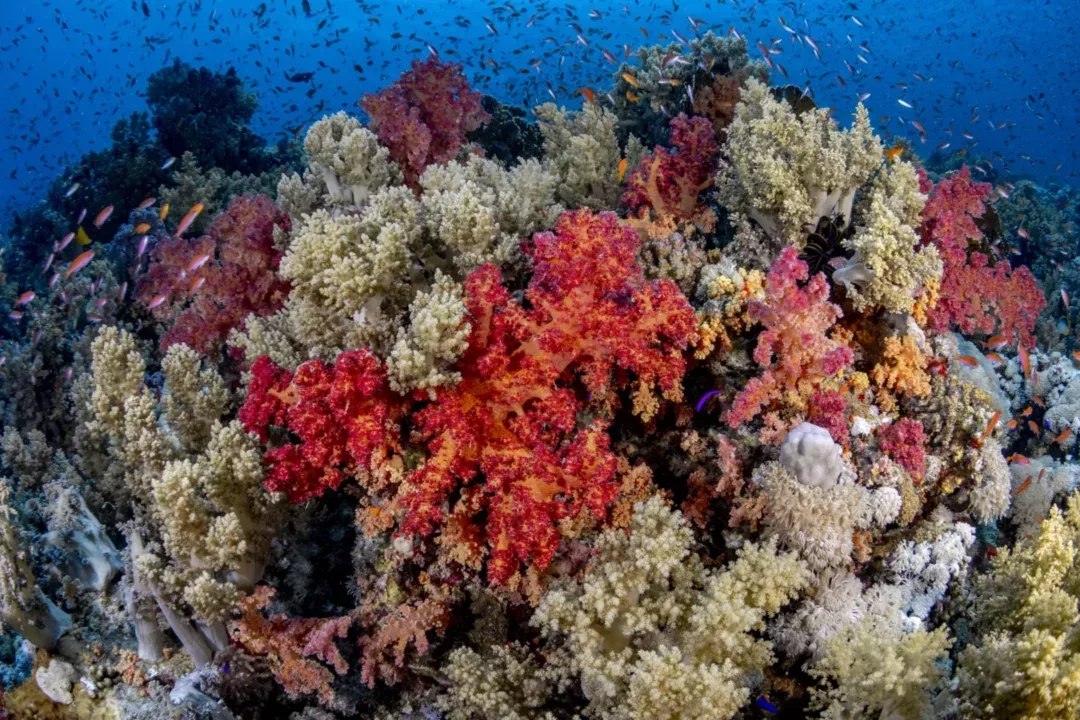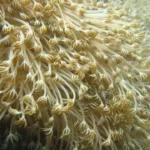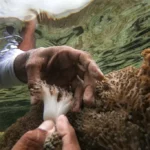Ecologists raise concerns over the impact of invasive species on fragile marine ecosystems. Their rapid spread can cause widespread damage to marine biodiversity, thus disrupting ecosystem balance.
Photo credit: ECO Latinoamerica (left) and Margioni Bermudez (right)
Unomia stolonifera, (formerly Xenia sp.) commonly known as the “stoloniferous fire coral”, is a fast-growing soft coral that originates from the Indo-Pacific region. It is known for its ability to reproduce quickly and outcompete native corals, ultimately smothering and displacing them. It is believed to have been introduced from the aquarium trade in the early 2000’s.
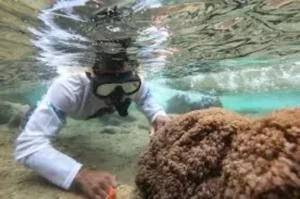
Since its first sightings in Valle Seco in 2007, the population has exploded along Venezuela’s coastline and has now been observed spreading east and west into the Caribbean Sea.
Due to the high fecundity, rapid growth, and absence of natural predators, U. stolonifera has proliferated vast expanses of coral reefs. This rapid colonisation has had detrimental impacts on the biodiversity of the affected ecosystems, growing over any hard substrate, including corals and seagrass. In areas most heavily impacted, the invasive soft coral now accounts for 100% of coral cover, eradicating a diverse array of native species. Ongoing research indicates that among the severely affected taxa are coral reef fishes, whose populations have suffered significant declines impacting both ecosystem function and services relied upon by many stakeholders.
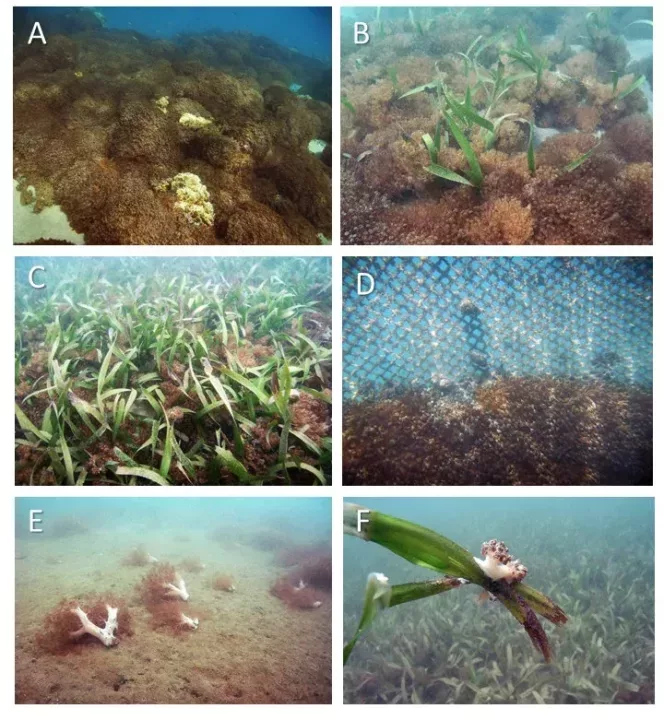
Underwater images of the invasive Unomia stolonifera in the study sites along the northeastern coast of Venezuela, Southeastern Caribbean Sea. A. Colonies monopolizing hard reef substrate. B. Colonies overgrowing the seagrass Thalassia testudinum. C. Seagrass bed occupied by invasive octocoral. D. Fishing net with colonies. E. Drifted colonies on the bottom. F. Detached T. testudinum with colonies floating with currents. – Source from (Ruiz-Allais, Benayahu & Lasso-Alcalá, 2021).
The ecological impact is evident and has now become an economic and social issue by directly affecting artisanal fisheries and tourism. In response to this catastrophic invasive species, the Unomia Project Team, alongside Venezuelan engineers, is developing an extraction prototype that will allow the efficient removal of the coral in affected areas.
For more information:
